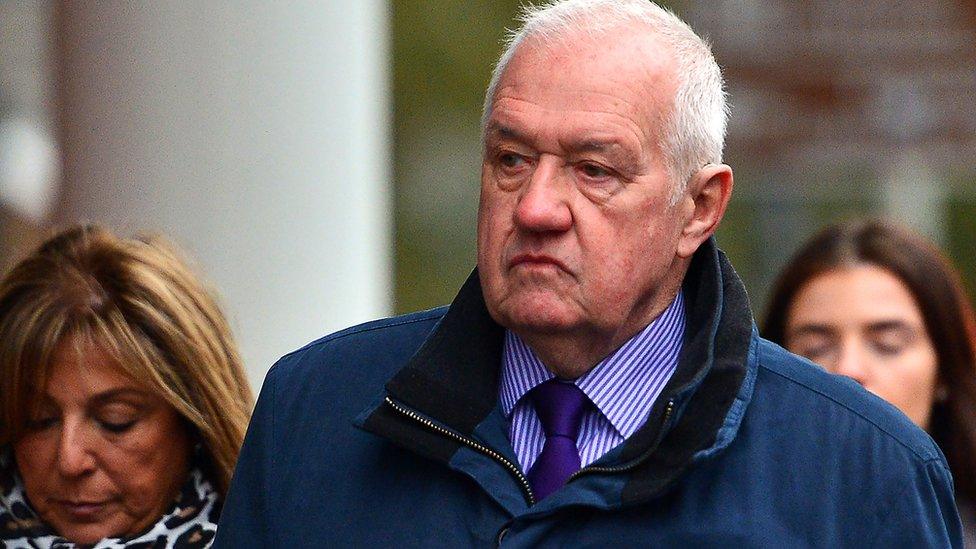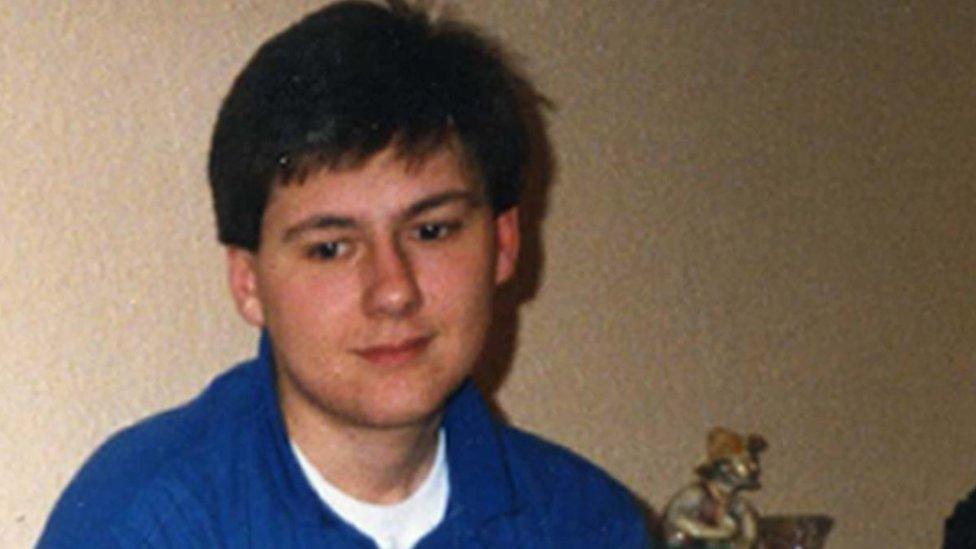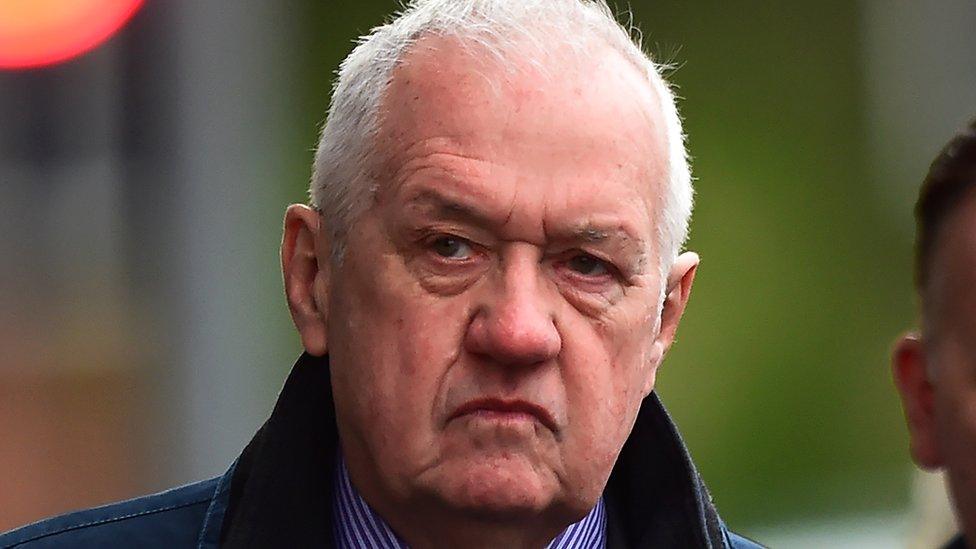Hillsborough chief David Duckenfield 'failed in his duty'
- Published

David Duckenfield denies the gross negligence manslaughter of 95 fans
The Hillsborough match commander "failed his duty in a terribly bad way," a jury has heard.
David Duckenfield, 75, denies the gross negligence manslaughter of 95 Liverpool fans, who died in a crush at the ground in 1989.
Delivering the prosecution's closing speech Richard Matthews QC said the case against Mr Duckenfield at Preston Crown Court was "not about sympathy".
He said Mr Duckenfield is "not charged with doing anything on purpose".
Mr Matthews told the jury: "We don't allege and never have done for a moment that Mr Duckenfield set out on that day to cause the deaths of anyone.
"He's not charged with murder.
"He's charged with failing his personal duty in a terribly bad way."
'Matter of chance'
Mr Matthews said the prosecution had not hidden or minimised the mistakes of others in the years preceding the disaster, and on the day itself.
He said: "There is no unfairness in accepting others were at fault," but Mr Duckenfield was singled out "because those failures and mistakes were in breach of his personal responsibility".
Mr Matthews said it should have been foreseeable to anyone showing a reasonable degree of care that there was an obvious risk of overcrowding on the Leppings Lane terrace, when the decision was made to open an exit gate, allowing large numbers of supporters into the ground.
"The difference between those who received a crushing injury and lived, and those who died, is a matter of chance," he said.
Earlier, the defence closed its case by reading evidence given to previous hearings by Supt Bernard Murray, who was in the police control box alongside Mr Duckenfield on the day.
In evidence to inquests in 1991 and a criminal trial in 2000, Mr Murray said he did not think about any risk to fans in pens three and four of the Leppings Lane terrace, when the decision was taken to open exit gates, to relieve a crush outside.
He said he did not think there was an obvious risk of death on the terraces, unless entry to the tunnel which led to them was blocked.
When he was asked if he accepted a reasonable commander would have foreseen such a risk, he said: "No I don't."
The trial continues.
- Published13 November 2019

- Published12 November 2019

- Published7 November 2019

- Published1 November 2019

- Published31 October 2019

- Published30 October 2019
